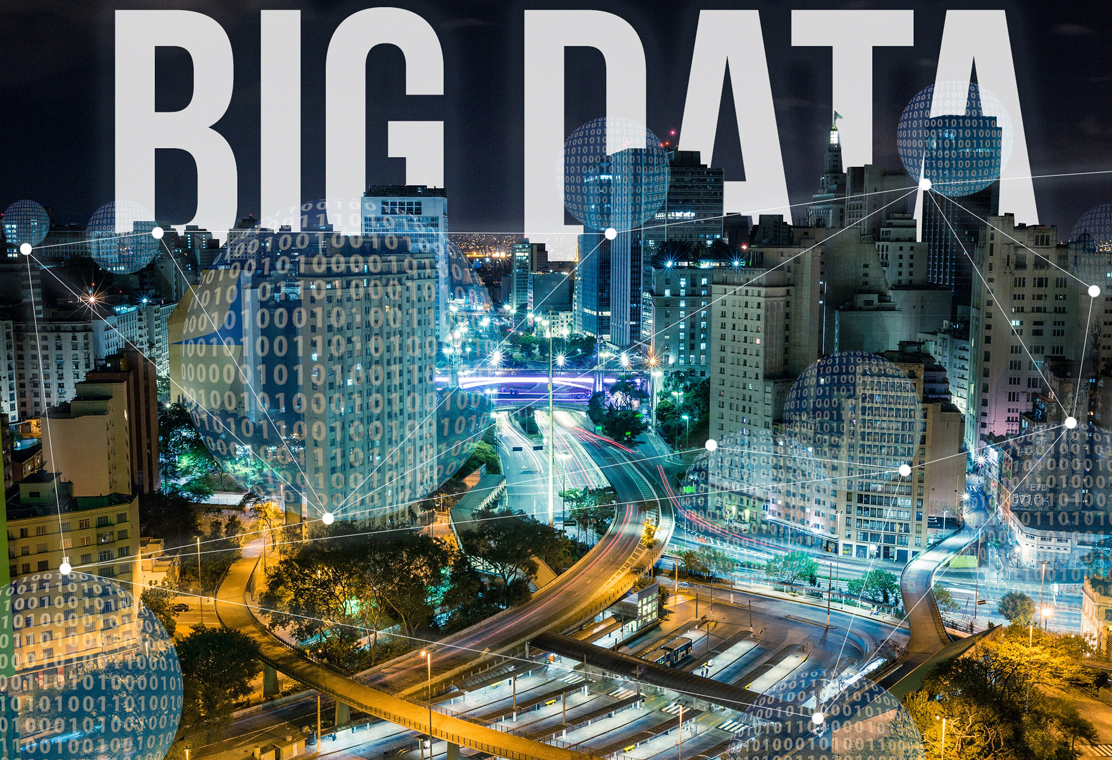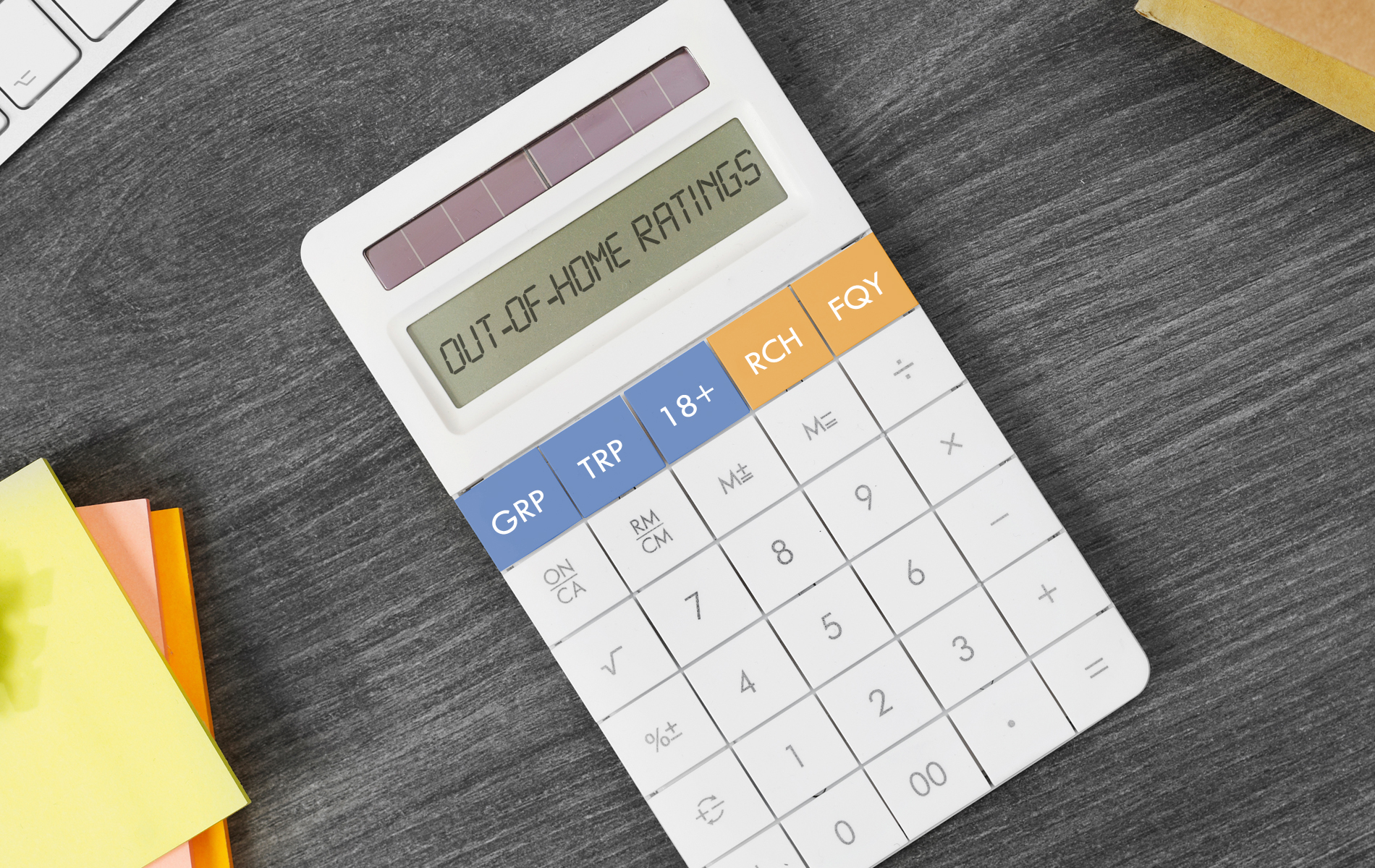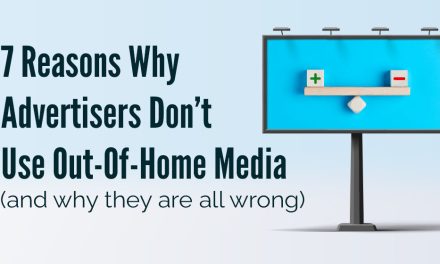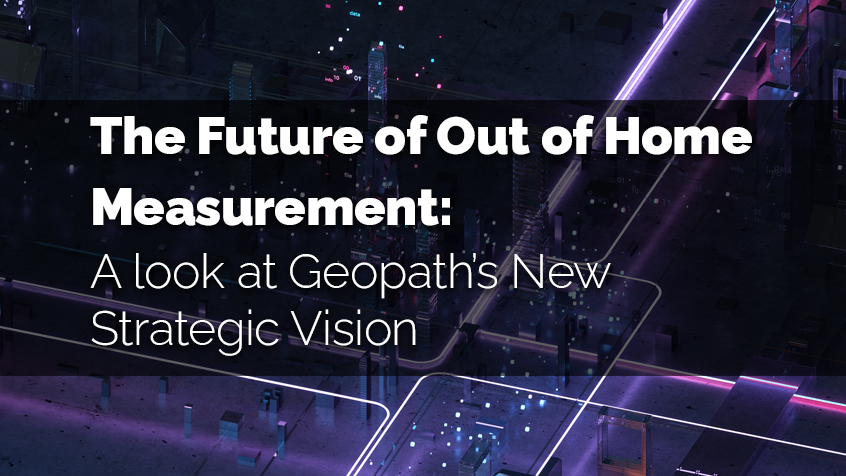Byte, Kilobyte, Megabyte, Gigabyte, Terabyte, Petabyte, Exabyte, Zettabyte, Yottabyte, Brontobyte, Geopbyte. (Yup… Brontobyte…Sounds like something from the Flintstones, but ok, sure…) We’ve all heard about Big Data, it’s everywhere in the news. But what does this all mean for Out of Home? Let’s start with establishing a sense of scale.
So, how much data are we producing? According to a study by IBM, the best estimates right now suggest that we create about 2.5 quintillion bytes of data per day. (2,500,000,000,000,000,000 – that’s 18 zeros if you’re counting) And those rates are growing exponentially.
How will this data affect our everyday lives? Smart devices are poised to make significant real world impact to everyday consumers. In-home energy smart meters and thermostats will reduce consumers’ energy costs. Urban transport will use real time tracking and social media monitoring to change routes, modify traffic lights, and send updates. Healthcare can monitor Google searches to look for flu outbreaks based on search patterns, and we’ve only begun to scratch the surface.
But of course one of the biggest uses of big data is for marketing and advertising. Advertisers are using data to analyze every aspect of consumer behavior – from searching, to online browsing, store dwell times, purchase patterns, individual preferences, and more. The Internet of Things promises to provide them with real time data about how their products are being used after they are purchased. Heck, now even your hairbrush will be providing data about you.
The age of Big Data is just beginning, and its effect on Out of Home media will be felt for years.
Big data is changing the face of marketing at a tremendous clip. The first forays, quite naturally were in online and digital where data was a natural part of the ecosystem. But as the majority of the population now own smartphones – 79% of US consumers (ComScore, 2016) – and more and more devices become smart, the amount of information available has very quickly gone from a drip, to a firehose…then Niagara Falls is not far off. Here are a few ways that all this data will change out of home.
Planning Out of Home Media Placement:
Smartphones will provide huge data sources that will allow OOH media planners to move beyond simple demographics toward planning that is based on geolocation profiles built around interests and travel habits. Using location data to plan out of home is nothing new, but data will change the landscape significantly. Marketers will be able to target very specific audience segments, and the patterns they create as they move through their environment and their day. By analyzing location in this way media placement will become much more highly targeted, and most importantly, more efficient and cost effective.
Data will connect Out of Home with Mobile:
As OOH begins to adapt to the infusion of mobile data, it will begin to be seen more and more as an obvious partner to mobile and social strategies, and those media channels will be planned together. Almost 70% of mobile usage is done outside the home (Criteo Mobile Report q4 2014), putting mobile users in direct proximity to OOH media. If you’re planning your out of home based on mobile geolocation you can use that same data to deliver your mobile campaigns. Studies have shown that consumers are 48% more likely to click on a mobile ad if they have previously seen the brand on OOH (NeuroInsight: Beyond OOH, 2015). The increase in wearables and other connected devices will also help foster the direct connection between OOH displays and the consumer. As people expect their digital and physical worlds to become more seamlessly connected the use of beacons, rfid and other technologies will more widely adopted.
Digital out of home will be a major beneficiary:
Digital out of home is a segment that is also growing rapidly. If the current rate of adoption continues we could be looking at as much as 80% of OOH placement being on digital OOH by 2022. Digital OOH is perfectly situated to capitalize on the growth of data. Advertisers will be able to apply real time updates to their campaigns, delivering contextually relevant content and changing creative based on information like weather, traffic, or even current social media sentiment. Access to digital out of home will greatly increase the speed and efficiency with which advertisers can make use of their data.
Data can inspire creativity:
It’s easy to look at all this talk about data as the realm of analysts and computer scientists, but that’s not the case. Data won’t just affect the planning and tactical execution of OOH media, it can also inform and inspire creative executions. Music streaming service Spotify recently reached into their huge stores of listener data to create lighthearted look at some of the more…interesting…listening trends of 2016.
Privacy concerns:
Of course all of this data collection and use can raise privacy concerns. Data companies are quick to point out that all their data is anonymized, and that no personally identifiable information is included. As it moves forward the industry must be careful to have open and transparent discussions and oversight in order to maintain the public’s trust – it is very easy to lose that trust, and very difficult to earn it back.
But, on the upside, Mark Boidman (Managing Director at noted consulting firm Peter J. Solomon) points out that consumers have become used to this sort of activity online, and the benefits can outweigh the drawbacks. “From a privacy standpoint, people are willing to give up information about themselves, as long as it’s aggregated and anonymous. They’re very comfortable [doing so] in order to get valuable information in return that’s going to help them. Our view is it’s the same thing online. Some people find it okay that they’re being tracked and certain targeted ads head their way.”
What the data powered future holds for Out of Home:
Out of home is a media that has been relatively static for a long time. The introduction of digital OOH formats a few years ago started the transformation of the industry, and now the influx of new data sources has accelerated that change. Out of Home is an industry on the precipice of major change – and some of those changes will undoubtedly surprise us as advertisers, agencies and media companies rush to capitalize on this new, valuable resource. Once thing is certain though – wherever OOH goes from here data will be a key component in that journey. Contact us to learn more about how data is changing the face of OOH.
Contact us for more information:





